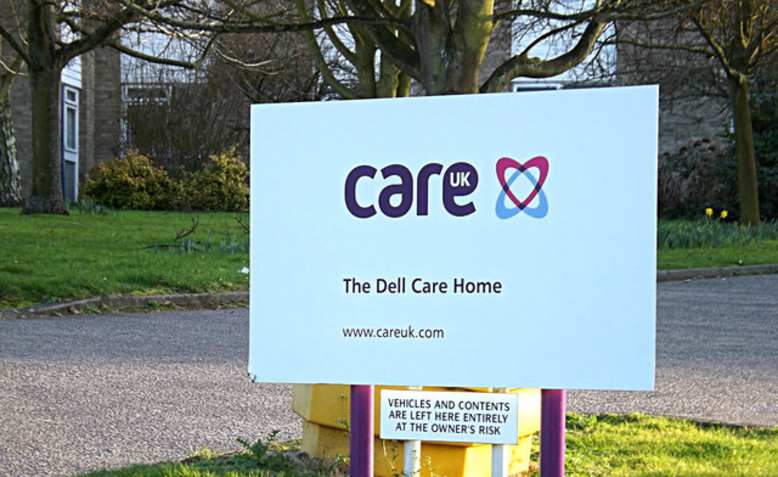 Care home sign, Photo: Geograph / cropped from original / licensed under CC BY-SA 2.0, linked at bottom of article
Care home sign, Photo: Geograph / cropped from original / licensed under CC BY-SA 2.0, linked at bottom of article
Ruling against care workers being entitled to the minimum wage for sleep-ins reveals once again the contempt in which essential workers are held, argues Caitlin Southern
The Supreme Court ruling that care workers are not entitled to even the inadequate minimum wage for sleep-in shifts comes as a cruel blow to a sector that has long been underfunded and overworked. Rather than receiving the estimated £400 million in back pay that they are owed, care workers have once again been reminded exactly how little they are valued by a system that demands so much from them.
Overnight shifts are rarely restful. The complex range of care needs means that sleep-in staff will often be required to carry out tasks or respond to incidents during the night, in some places often on a nightly basis. Being on a sleep-in means being on call. By declaring that this does not count as work, Lady Arden has reinforced the grimly exploitative methods used by many care providers to squeeze the maximum amount of work from these dedicated professionals for the bare minimum in wages.
The ruling also sets a dangerous precedent for other sectors, particularly those where precarious and low hour contracts are the norm, by allowing employers more freedom to determine what counts as work.
The response of Edel Harris, Chief Executive of Mencap, is that, although workers deserve to be better compensated for the difficult and gruelling work that they do, actually paying them properly would drive many providers to fail. This is particularly galling from someone who earns £170,000 per year according to their annual report.
The incredibly high incomes of executives and charity professionals only further insults the care workers who earn a pittance as it is, with this ruling giving them only an entitlement to even lower earnings for a job that has becoming ever more challenging and dangerous during the pandemic.
The admission that the business model of the care sector is untenable without subjecting the workers to poverty pay is a surprisingly frank admission, and possibly more telling than was intended. A business that can only succeed if the workers are underpaid is simply not a sustainable or acceptable model.
Framing the response as being concerned for the wellbeing of service users, who would suffer if the providers were to fail financially, is extremely disingenuous. It deliberately ignores the need of workers to earn a living wage and the ruling will only further harm the care sector, as it removes the incentive for workers to take those shifts to provide a much-needed boost to their wages.
The culture of low pay in the care sector results in an extremely high staff turnover rate. This reduces the levels of care that they are able to provide. It erodes the trust of vulnerable people receiving support when there is a constant stream of new faces and personalities to adjust to.
That the provision of social care in the UK is largely met by private and charitable providers is a national disgrace. Caring for our most vulnerable should not be motivated by profit but by the same principle of duty that underpins the NHS – an essential service funded and delivered publicly for the public good.
Care workers deserve to be paid properly for the vital work that they do rather than exploited for profit. It is unacceptable that they be expected to provide exceptional and often exhausting levels of support while barely earning enough to survive
Before you go
Counterfire is growing faster than ever before
We need to raise £20,000 as we are having to expand operations. We are moving to a bigger, better central office, upping our print run and distribution, buying a new printer, new computers and employing more staff.

